
A short ring sounds, then the bluish-white light of her smartphone lights up, displaying a message from her father: "The dishonorable one killed your mother", says Figen, "At first I thought my father was scaring me again; it wouldn't be the first time. But I felt that this time it was different. I knew my mother had really died and I called my grandmother; hoping she was still alive, that the uneasy feeling was just a delusion." After the first ring, her grandmother answers the phone, "My condolences. We are on our way to pick you up. Be ready." Her aunt Habibe Çevik's ex-husband murdered his former wife and Figen's mother, Fatma Akta, with an unlicensed gun at her grandmother's house in Izmir. The sisters were living with their mother again after separating from their husbands. Habibe separated from her husband six years ago. The divorce process of Figen's parents was still ongoing. Although they both wanted an amicable separation, her father continued to harass her mother and constantly questioned his mother-in-law about her.
He wanted to know how Fatma dressed, if she went to work, and if she was seeing anyone.
"Although our application for "no contact and no proximity" is approved, my father continued to terrorize my mother. Again and again, he waited for her outside her workplace in an inebriated state and followed my mother to the front door." For the men know that many injunctions are not even accepted by the police, the punishments are carried out too half-heartedly - sometimes not at all. "There needs to be a change when police officers keep sending female victims of domestic violence home without filing charges against their husbands or partners. The men in Turkey know that no real significant punishment awaits them because they appeal to the patriarchal social order of judges ".
Her uncle was also sentenced to three months in open prison for terrorizing his ex-wife with death threats. On July 16, 2019, the day of his execution, he is approved for release. He waits outside the house for the sisters and carries out his threat; he shoots the two women in their living room. A week after my mother's death, my father called me unexpectedly. I was to be at the front door in 15 minutes. As I sat down in the car, he suddenly hits the steering wheel. Once again, he was drunk." "I didn't know he was going to kill your mother, too," her father says abruptly. Figen is convinced that her father gave the money for the murder weapon and is involved in the murder.
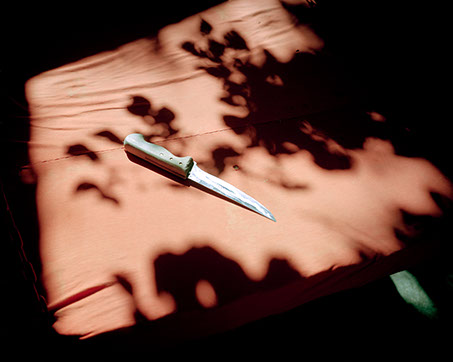
„Look, I'm here with you again, your father.“ Nihat visits the grave of his Helin daughter each day. He carefully touches the cold black marble, removes single wilted flower petals.
Helin Palantöken is on her way back home, wanders along the short distance from school to the station when Mustafa unexpectedly gets out of his car and points a newly bought shotgun at her and two friends.
„Don't do that“, Helin's desparate attempt to stop Mustafa is in vain. While her friends get slightly wounded, the 17-year-old young woman dies at the crime scene.
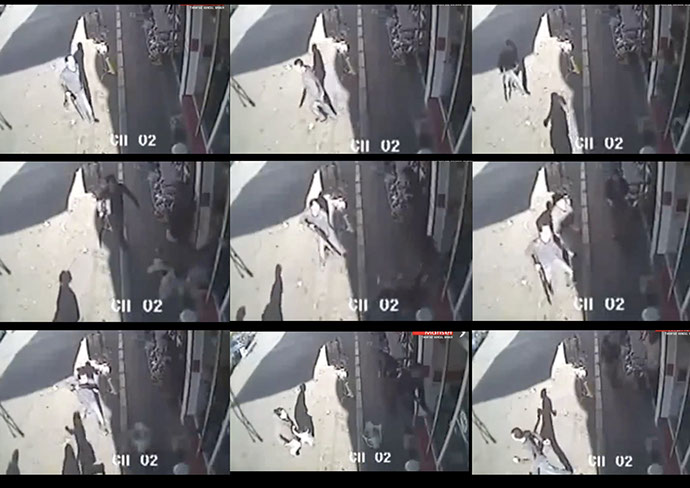
Izmir, Turkey.
Pinar Ünlüer, a 29-year-old woman, was waiting for her son in front of the School when her ex-boyfriend
appeared in front of her. He killed her with a shot gun after she refused to marry him. The killing was recorded by the cameras of a workplace. She was shot with a shotgun on the 3rd of December 2012.
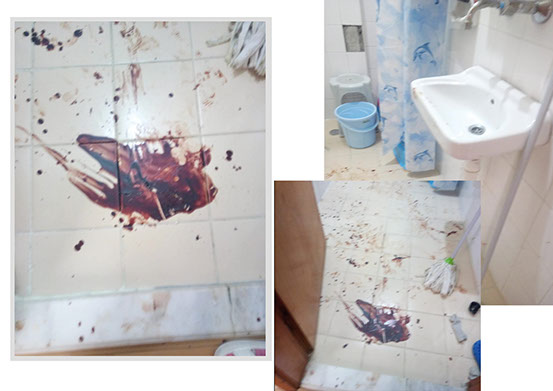
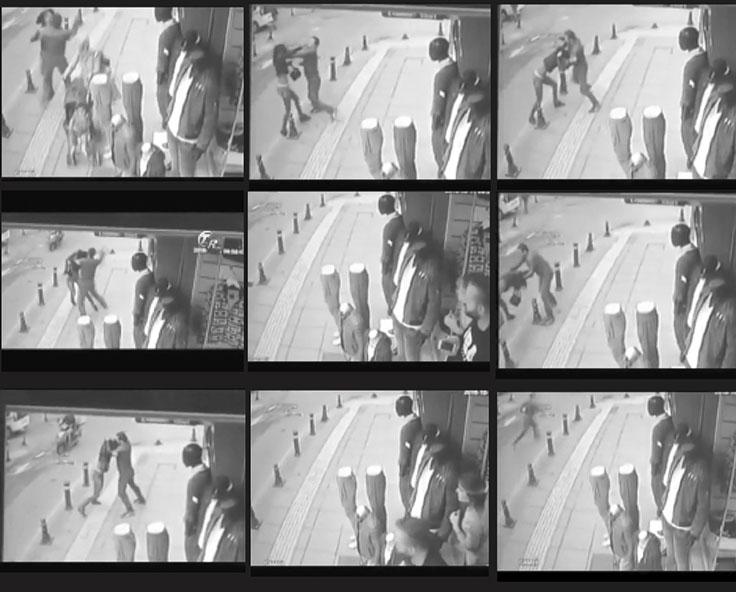
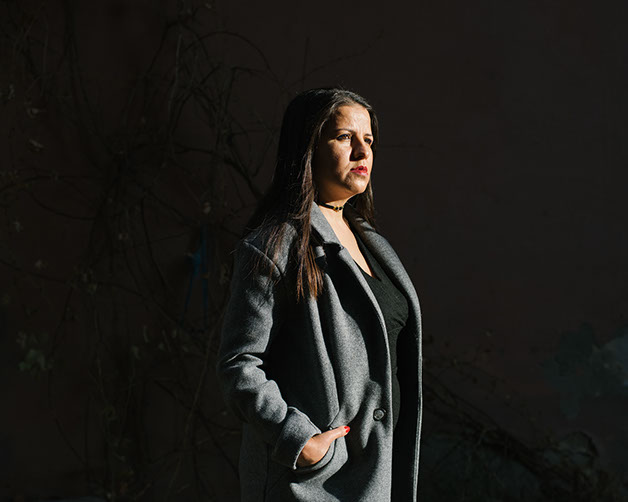
Ismails Çet (64), the father of Şule Çet who died on May 29, 2018 from a suspicious fall from the 20th floor of a plaza in Ankara. “I can’t get out of here. The man is obsessed with me. He won’t let me go. I wish I hadn’t come,” she wrote in a text to a friend shortly before her death. Nevertheless, it was claimed to be suicide. After heavy campaigning by women‘s rights groups, Şule’s case was reopened as a murder investigation. Çagatay Aksu and Berk Akand, have since been indicted by the public prosecutor’s office on suspicion that they first sexually abused the 23-year-old student and then murdered her by throwing her out of the window of an office tower in Ankara.
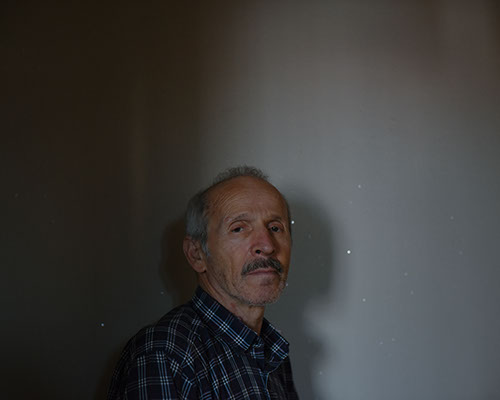
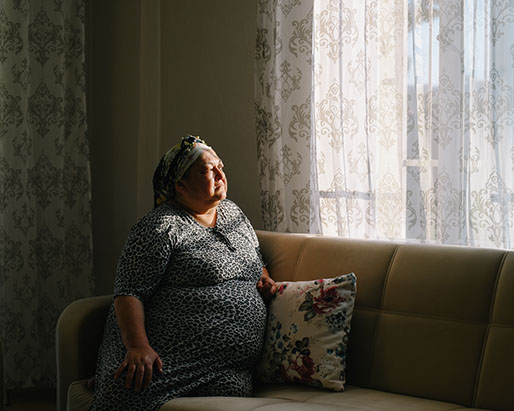
Öznur gets her jacket from her bedroom. She wants to spend the night with her sister. As she closes the bedroom door quietly behind her, her eyes dart to her ex-husband. He is standing on the kitchen doorstep. With a treacherous expression on his face, he keeps his hands hidden behind his back. He walks toward her. After a few steps, he abruptly grabs her hair, brutally drags her to the floor, drags her into the bathroom. Öznur lies with her back on the cold floor. The knife has a short, flexible blade. Her screams echo off the bare white tiles as Öznur presses her hands to her chest; to protect her heart and lungs. He stabs near her heart. Öznur screams for help, yells at him, "Please, stop! Think of our son." No one hears the woman. Bare rage has taken possession of her ex-husband. Incessantly, he continues to stab twice in the lungs, cut through the back of her hand, crush her fingers. He attacks her a total of fifteen times until she hardly seems to move. Only then does he leave her there on the floor and walks down the hall. Hastily, he tugs at the drawers in the kitchen, looking for a fixed blade knife. "You have to get out of here now, or he'll kill you," Öznur thinks. With all her last strength, she pushes herself up from the floor, tugs the door open. Her bloodied hands leave marks on the yellowish walls in the hallway as she staggers down the steep stairs. Barefoot, Öznur walks down the sidewalk, looking back over her shoulder again and again - wanting to make sure he's not following her. All of this is captured on the surveillance camera of a snack restaurant just a few steps from her house.
Die Aufnahmen einer Kamera zeigen den Moment der Tat. Die Frau wurde von ihrem Ex-Ehemann in Ümraniye brutal getötet.
The footage from a camera shows the moment of the crime. The woman was brutally killed by her ex-husband in in Ümraniye.
.jpg?crc=4919114)
“Once walking down the street an older man stopped in front of me, observed me from tip to toe while his expression changed. He spit at me.
In his eyes, I disgraced my family ́s good name by wearing a T-Shirt, showing too much skin. Another man called me “bitch”, says Cansu.
She experienced that in her hometown Van; a city in eastern Turkey.
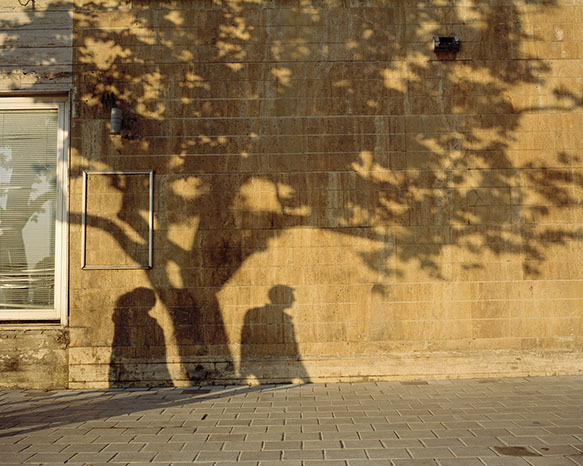
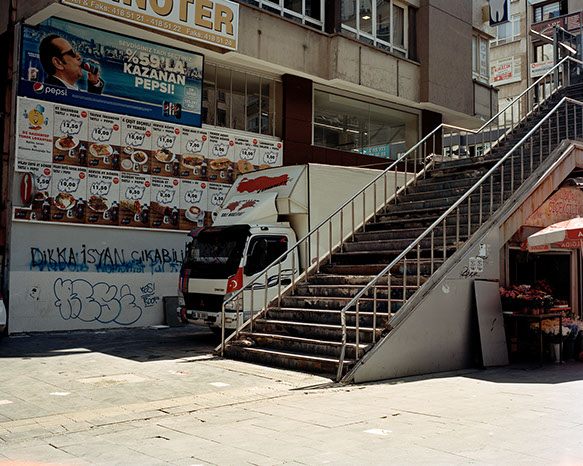
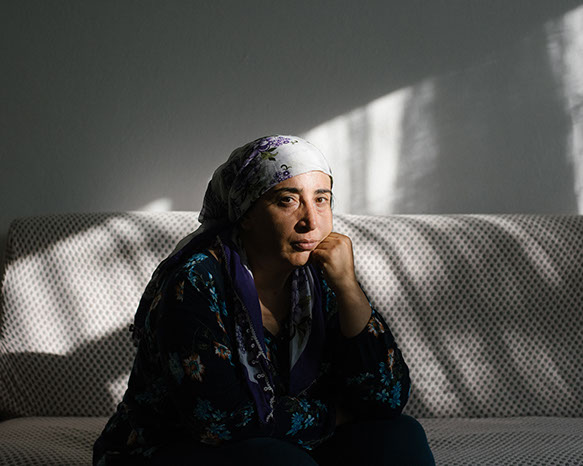
Cigdem has been fighting for women´s right in Turkey since her sister Mühterem Göcmen (31) was stabbed eight times by her husband, Serdar Göcmen, at her workplace in June 2013, after she filed for divorce and refused to reconsider her decision.
.jpg?crc=205325485)
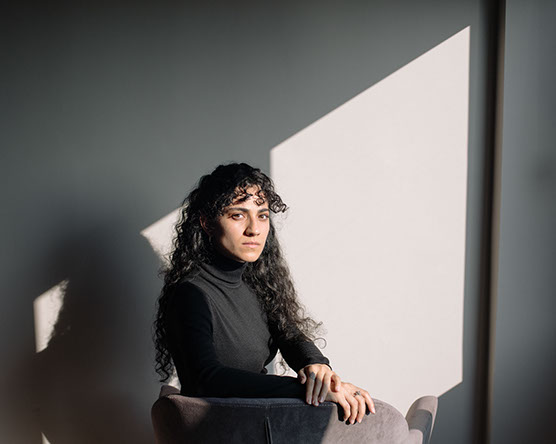
Esra Kotan:
Am 15. August 2019 wird Merve Kotan (19) von Muhammet Gürsoy mit einer
Schrotflinte getötet. Vier Mal wollte sich Merve von ihm trennen. Er bedrohte sie jedoch
ihre Familie zu töten. Mehrmals kommt sie während der achtmonatigen Beziehung mit
Blutergüssen nach Hause; behauptete gegenüber ihrer Familie sie habe sich mit einer
Freundin gestritten oder sei die Treppe runtergefallen. Sie wusste, wenn ihre Eltern den Grund für die Verletzungen wissen, dass die Situation eskaliert. Merve entschied sich zu schweigen und ihre Traue und Angst in ihren Tagebüchern.
English: On August 15, 2019, Merve Kotan (19) was killed by Muhammet Gürsoy with a Shotgun. Four times Merve wanted to separate from him. However, he threatened her to kill her family. Several times during the eight-month relationship, she came home with bruises claimed to her family that she had had a fight with a friend or had fallen down the stairs. She knew if her parents knew the reason for the injuries that the situation would escalate. Her sister Merve decided to keep silent and write down her sadness and fear in her diaries.
She writes down how he threatens her daily with a gun, wanted to strangle her with his belt. She has been writing since her marriage to Ahmet Kara on Sept. 24, 2016 - until her death on Sept. 7, 2017. Medine is hanging dead from a rope in her apartment. She has allegedly hanged herself. A few days ago she visited her sister Nuray in Adana and wanted to come back the birthday of her nephew on September 11. A day before her death, Ahmet calls her brother Hasan. He says; "Come over and get your sister. Either she kills me or I kill her." And hangs up immediately. Nuray calls Medine countless times. She doesn't answer. So Nuray calls Ahmet. His answer to her question about why her sister doesn't answer is; "You can't reach her." At one o'clock in the night, Nuray's phone rings. Her brother Hasan calls, tells her to find a car immediately and come to the hospital. "Did she die?" wants Nuray to know. He says no. However, when she finds the police officers at the hospital and asks about her sister, the officers say; "My condolences." Nuray is convinced that her sister was killed intentionally. Her suicide was staged by her husband. "She was killed. There were two people. How can it be that his brother Mehmet arrived at the crime scene earlier than the police when he lives 15 kilometers away from them. I handed her over in her wedding dress and brought her back home in a shroud." Neither Medine's husband nor his family appears at the funeral. The police do not cordon off the scene; three days after Medine's death, Ahmet enters the apartment with his family. According to the police, the husband is allowed unguarded access. Nuray believes that the crime scene has been altered; evidence destroyed and stolen. Because without evidence, Medine's murder cannot be proven. Without evidence, the investigation is closed.
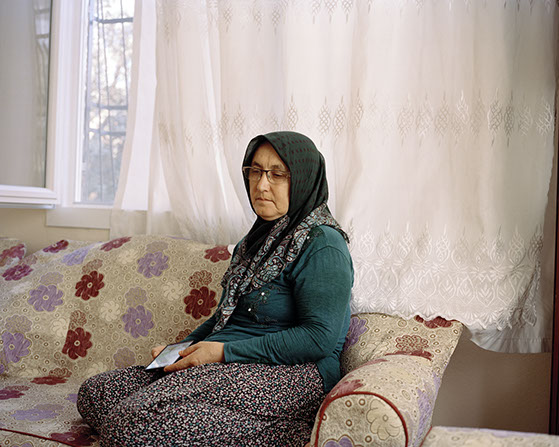
Eine verwackelte Aufnahme mit dem Smartphone aufgenommen. Die hysterischen Laute eines jungen Mädchen sind zu vernehmen, während drei Personen im Hintergrund hektisch versuchen aus dem Geschäft ins Freie zu gelangen. “Mama. Mama stirb nicht”, fleht das junge Mädchen. Sie weint hemmungslos und greift mit ihren Händen nach ihrer Mutter und berührt sie an ihren schwarzen Haaren.
Die Frau trägt eine blütenweiße Bluse und einen Rucksack auf dem Rücken. Mit der rechten Hand hält sie an ihre Kehle. Sie ist zuerst nur von der Seite zu sehen. Das Ausmaß der Tat ist erst nach ihrem Wenden zur aufnehmenden Person zu erkennen; denn die Vorderseite ihrer einst weißen Bluse ist getränkt mit ihrem eigenen Blut. Sie versucht vergeblich die Wunde an ihrer Kehle zu schließen. Panisch schreit sie “Ich möchte nicht sterben” und scheint dabei direkt in die Kamera zu schauen.
Ihr Name ist Emine Bulut. Es sind die letzten Aufnahmen der 38-jährigen Türkin, die von ihrem Ex-Mann vor den Augen ihrer zehnjährigen Tochter in einem Schnellimbiss erstochen wurde.
English: A blurred shot taken with a smartphone. The hysterical sounds of a young girl can be heard, while three people in the background frantically try to get out of the store into the open. "Mama. Mama don't die," the young girl pleads. She cries unrestrainedly and reaches out with her hands to touch her mother by her black hair.
The woman wears a pristine white blouse and a backpack on her back. With her right hand she holds to her throat. At first she can only be seen from the side. The extent of the crime can only be seen after she turns to the person recording; for the front of her once white blouse is soaked with her own blood. She tries in vain to close the wound on her throat. Panicked, she screams "I don't want to die" and seems to look directly into the camera.
Her name is Emine Bulut. These are the last shots of the 38-year-old Turkish woman who was stabbed to death by her ex-husband in front of her ten-year-old daughter in a fast food restaurant in Kirikkale.

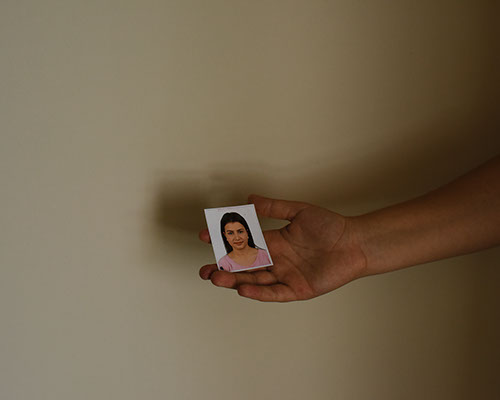
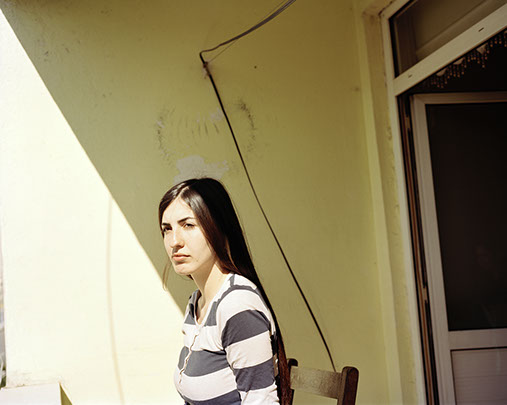
The sound of the slamming front door echoes in the quiet apartment as footsteps descended the unfinished concrete steps and gradually subside in the distance. Açelya, half asleep, pulls up the warm blanket once more, when unexpectedly the peaceful peace is disturbed by loud, consecutive four shots in front of the house. Açelya hurried immediately to the balcony and watched the scene she was facing. The sunken body of her mother Fatma lies on the narrow footpath. Only the chasteness of her breath breaks the silence as she walks towards her mother. The young woman still suspects that the loud shots have frightened her mother Fatma and that she has fainted as a result - but the woman lies motionless on the floor in her own blood. Fatma dies in the arms of her daughter. The woman is now very much committed to women's justice in Turkey. Her mother complained about her colleague. Zeynel sees this as a personal attack. He has the feeling "to have lost his face in front of the people". An expression that reflects the patriarchal social order in Turkey.
The outline of a person on the asphalt marks the exact crime scene where Gülten Güllüm was killed by three bullets to the head on December 6, 2018. Leading up to her death, she was constantly threatened with calls and messages.
“I will kill you” was one of them.
In Mersin, a young turkish student, Özgecan Aslan was travelling home on a minibus in the southeast seaside province of Mersin when a man tried to rape her.
When she retaliated with pepper spray, he stopped and beat her to death with a iron bar before enlisting his father and a friend to help dispose of her body by burning, cutting her body in pieces and dumping it in a river. Unlike many of the other murdered woman, her story got international attention and spread all over the world.
Finally women from every corner of Turkey dared to hope for a better future. This was the last straw. Her brutal death has sparked mass protests in Turkey and prompted women to share their stories of sexual harassment, violence and fear in a growing Twitter campaign #sendeanlat (tell your story), as well as sharing their tactics they have resorted to, such as wearing a wedding ring or getting off a bus early to avoid being the last passenger.
Mersin, Turkey, November 21, 2016.
After a long day she was finally on her way back home, almost reached the car when her husband suddenly appeared in front of Yasemin and their son. He tried to convince the woman over and over again. Under the orange tree Yasemin was murdered by her husband after they had been been separated for more than 1.5 years at that time.
He slits Yasemin ́s throat close to a kindergarten where where she was a teacher.
Yasemin ́s fate was not and will not be a singular case in Turkey. She was murdered by the hand of men, simply for harming their beloved Turkish honor of men and family members. Yasemin Çetiner (42) died on the 10th of December 2014, Mersin, Toroslar.
.jpg?crc=3784324929)
Ayla is just one of many mothers in Turkey who lost her young daughter by the hand of a man. In a harsh voice, she tells of the death of her daughter Esra and granddaughter Beren: The initial pressure on his part quickly turns into a threat. He lurks outside the front door, waiting for Esra and her five-year-old daughter Beren to be at home alone - as Gökhan reports in his trial. Shortly after seven o'clock in the morning he rings the doorbell. Full of rage Gökhan drove seven hours through the night to her. The evening before, a friend of Esra's had told him that she would not return his confession of love and would like to marry again. This lie was supposed to discourage the approach of her ex-husband, but has the opposite effect.
On 27 March 2017, Gökhan slits the throat of his ex-wife and daughter. He spends the whole day with the corpses. He impatiently waits for Esra's brother and mother, who live together in the apartment. They, too, are to pay with their lives, he later tells in court. With a light smile on her lips she says: ''My little 4-year-old baby, my 29-year-old daughter. May Allah bless you. I can't forget her. That is impossible. Beren was just starting to talk. She said to me "my sweet grandmother", always and everywhere. She and her mother were something special".
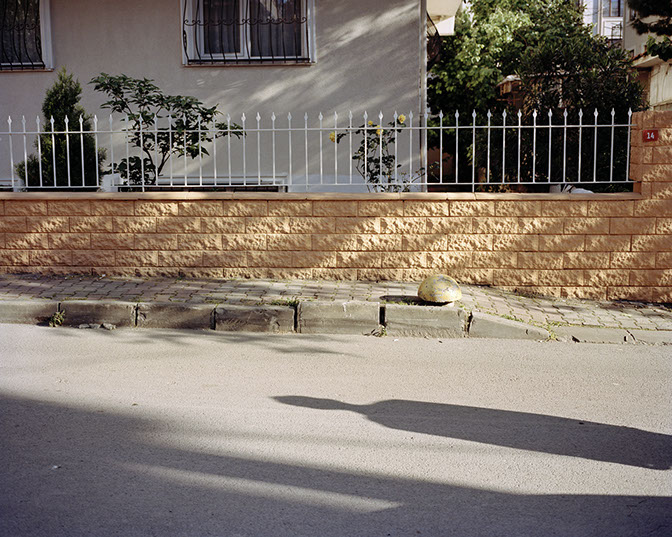
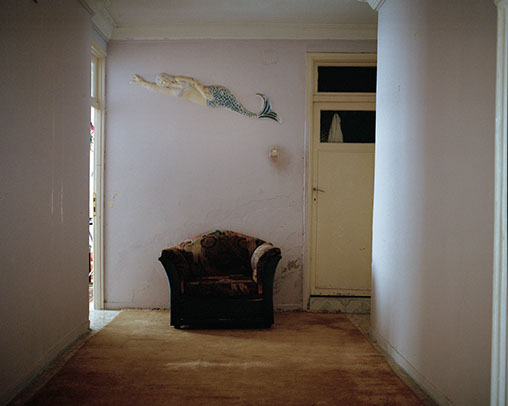
.jpg?crc=3989497267)
Hatice Kurt (46) was shot dead in the middle of the street by her ex-husband on March 27, 2020.
Sie schreibt auf, wie er sie täglich mit einer Waffe bedroht, sie mit dem Gürtel erwürgen wollte. Seit ihrer Hochzeit am 24.09.2016 mit Ahmet Kara schreibt sie – bis zu ihrem Tod am 7.09.2017. Medine hängt tot am Seil in ihrer Wohnung. Sie hat sich angeblich erhängt. Vor einigen Tagen hat sie noch ihre Schwester Nuray in Adana besucht und wollte eigentlich um Geburtstag ihres Neffen am 11. September zurückkommen. Ein Tag vor ihrem Tod ruft Ahmet ihren Bruder Hasan an. Er sagt; „Kommt vorbei und holt euch eure Schwester. Entweder bringt sie mich um oder ich bringe sie um.“ Und legt sofort auf. Nuray ruft Medine unzählige Male an. Sie antwortet nicht. Deshalb ruft Nuray Ahmet an. Seine Antwort auf ihre Frage, warum sich ihre Schwester nicht meldet, ist; „Du kannst sie nicht erreichen.“ Um eine Uhr in der Nacht klingelt Nurays Telefon. Ihr Bruder Hasan ruft an, sagt ihr, sie soll sofort ein Auto finden und ins Krankenhaus kommen. „Ist sie gestorben?“ will Nuray wissen. Er sagt nein. Als sie jedoch die Polizisten im Krankenhaus antrifft und nach ihrer Schwester fragt, sagen die Beamten; „Mein herzliches Beileid.“ Nuray ist davon überzeugt, dass ihre Schwester vorsätzlich getötet wurde. Ihr Selbstmord von ihrem Ehemann inszeniert wurde. „Sie wurde umgebracht. Es waren zwei Personen. Wie kann es sein, dass sein Bruder Mehmet früher als die Polizei an dem Tatort erscheint, wenn er 15 Kilometer von ihnen entfernt wohnt. Ich habe sie in ihrem Brautkleid übergeben und in einem Leichentuch wieder nach Hause gebracht.“ Weder Medines Ehemann noch seine Familie erscheint am Begräbnis. Die Polizei sperrt den Tatort nicht ab; drei Tage nach Medines Tod, betritt Ahmet mit seiner Familie die Wohnung. Laut der Polizei ist dem Ehemann der unbewachte Zutritt erlaubt. Nuray glaubt, dass der Tatort verändert; Beweismaterial zerstört und entwendet wurde. Denn ohne Beweise kann der Mord an Medine nicht nachgewiesen werden. Ohne Beweise wird die Ermittlung eingestellt.
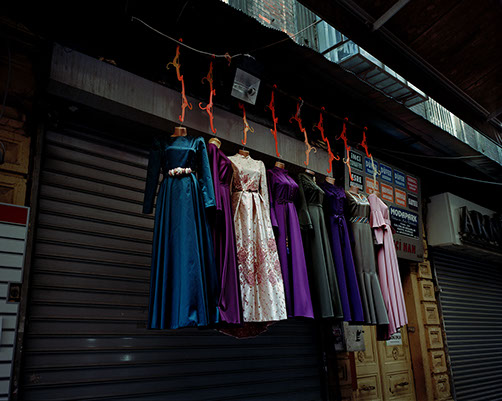
Münevver Kizil, Istanbul
Sie waren für eineinhalb Jahre ein Paar. Wollten Heiraten. Nach vielen
Schwierigkeiten in der Beziehung trennt sich die 36- Jährige, denn sie war schon in
ihrer ersten Ehe der Gewalt ausgesetzt. Eine erneute wollte sie unter diesen
Bedingungen vermeiden. Seit ihrer Trennung in 2013 terrorisiert und bedroht Seyfettin Münevver unaufhörlich. Wollte sie mit dem Auto überfahren, versuchte sie in ihrer Wohnung zu erwürgen, vor der Schule ihrer Tochter hält er ihr eine geladene Waffe an die Taille. Er hört nicht auf sie zu bedrängen und erscheint immer wieder vor der Wohnung auf. Münevver erhält unzählige Bedrohungen.
“Unaufhörlich sendet er mir Nachrichten. Hunderte. Unter diesen vielen Drohungen, ist eine Nachricht wichtig; “Ich werde dich an deinem schönsten Tag vernichten. Deine Liebsten werde ich Dir wegnehmen. Du wirst dem Rollstuhl angewiesen sein und dein Gesicht überschütte ich mit Säure”, erzählt Münevver. Lediglich eine Geldstrafe von 600 Lira muss er für seine Drohung zahlen. “Ich fühle den Tod jeden einzelnen Tag in meinem Nacken. Seit sieben Jahren nun. Menschen sterben und werden erlöst.
Ich jedoch sterbe immer und immer wieder. Wen wieder einmal in den Nachrichten über den Tod einer Frau berichtet wird, sehe ich mich selber dort auf den Boden liegen. Nach wie vielen Tagen werden sie mich vergessen haben? Wer wird sich noch an mich erinnern?
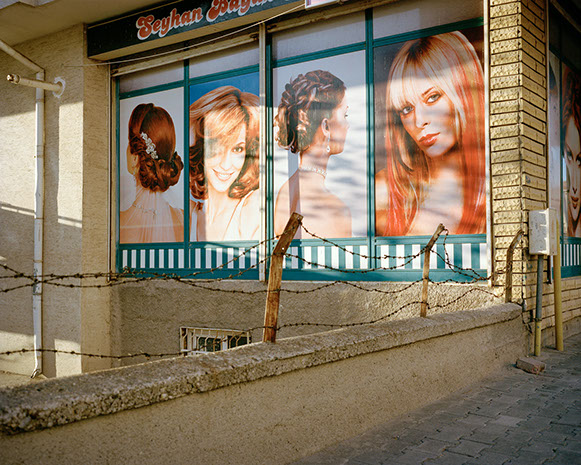
Necmiye Ceren Baran (20) was killed at one of the most crowded spots in Ankara by her ex-boyfriend, a police officer. She did not reply to his confession of love and was shot with a shotgun on the 10th of May 2016.
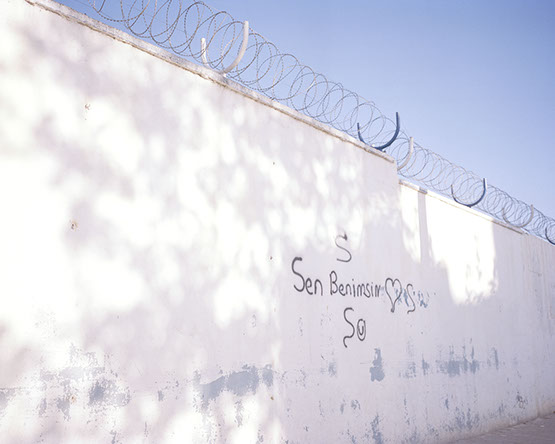
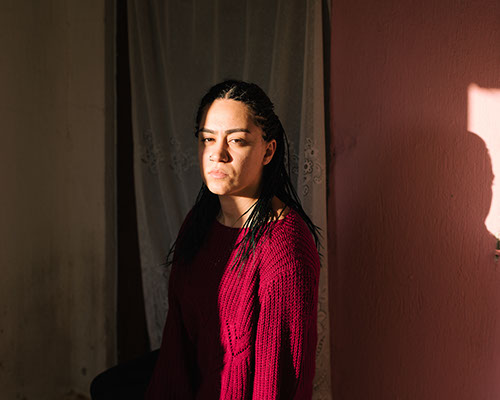
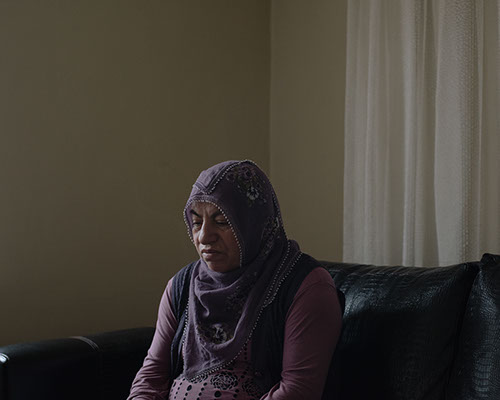
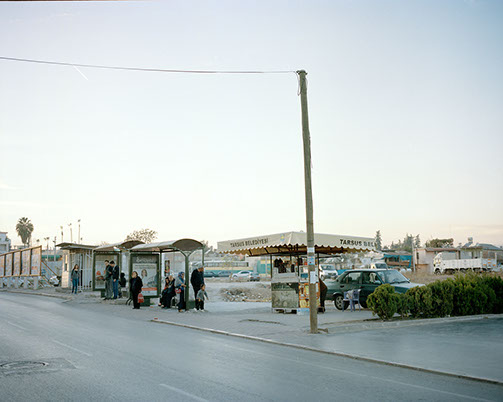
.jpg?crc=386498028)
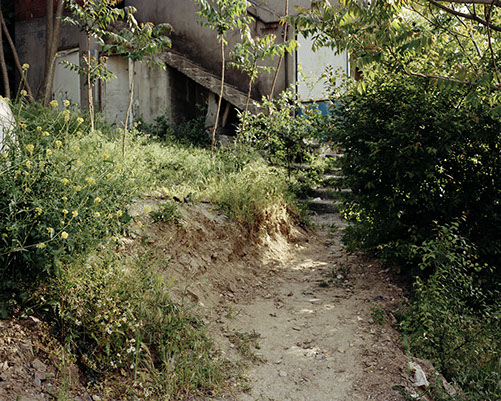
„you belong to me”
I
Istanbul, Turkey 2016
A 35-year-old woman was on her way to the post office in the mornig in Istanbul when her ex-husband suddenly appeared in front of Çiğdem Koç. He stabbed her up to 25 times to death while they have been separated for more than 10 years at that time. She died on the 11th of October 2016.
The killing was recorded by the cameras of a workplace.
.jpg?crc=4287554459)
.jpg?crc=117441849)
Birgül Bilal was shot with a shotgun by İrfan Çengel on Oct. 15, 2019. He subsequently committed suicide.
Birgül Bilal wurde von İrfan Çengel am 15.10.2019 mit der mitgebrachten Schrotflinte erschossen und begeht an-schließend Suizid.
Laut der Frauenrechtsorganisation ‚‚Kadin cinayetleri, Frauenmorde‘‘, die Gewalt gegen Frauen verfolgt, seien 1964 Frauen zwischen 2010 und 2020 für chauvinistische ‚‚Rechtfertigungen‘‘ ermordet. Im letzten Jahr seien 474 Frauen von Männer getötet. Allerdings handelt es sich hier um eine Dunkelziffer, da keine offiziellen Statistiken über die Frauenmorde geführt werden.
According to the "Platform we will stop murders of women", which tracks violence against women, 474 women were killed by men in 2019. Last year, 300 women were murdered by men who justify their act by saying that the woman ''deserved'' to die because of her ''wrong'' behavior. In 171 murder cases, there is a corresponding "suspicion".
Three to five women are killed every day in Turkey. Most women are killed by their husbands or partners because they demand a divorce or separation, do not return their confessions of love and seek self-determination. However, this is an unreported figure, as no official statistics are kept on the murders of women in Turkey.
Die Frauen werden ermordet, da sie sich „moralisch verwerflich“ verhalten haben und
dieses Verhalten den kulturellen Erwartungen nicht entspricht. Sie verletzen dadurch die “Ehre” der Männer und bringen Schande über ihre Familien. Gewalt gegen Frauen ist ein Problem auf der ganzen Welt, aber im internationalen Vergleich ist die Zahl an Gewalttaten in der Türkei besonders hoch. Fast jede zweite Frau wird Opfer von Gewalt.
Drei bis Fünf Frauen werden täglich in der Türkei getötet. Die meisten Frauen werden von ihren Ehemännern oder Lebenspartnern umgebracht, da sie eine Scheidung oder Trennung verlangen, deren Liebesgeständnisse nicht erwidern, sich gegen Missbrauch wehren und nach Selbstbestimmung streben.
The women are murdered because they have behaved "morally reprehensibly" and this behavior does not conform to cultural expectations. In doing so, they violate the "honor" of men and bring shame to their families. Violence against women is a problem all over the world, but in international comparison, the number of violent acts in Turkey is particularly high. Almost every second woman is a victim of violence.